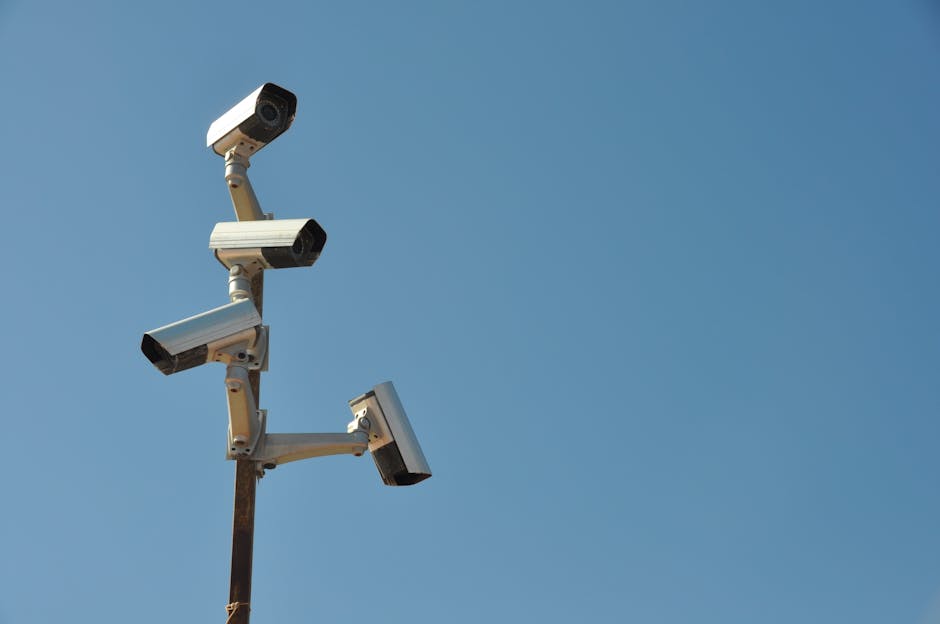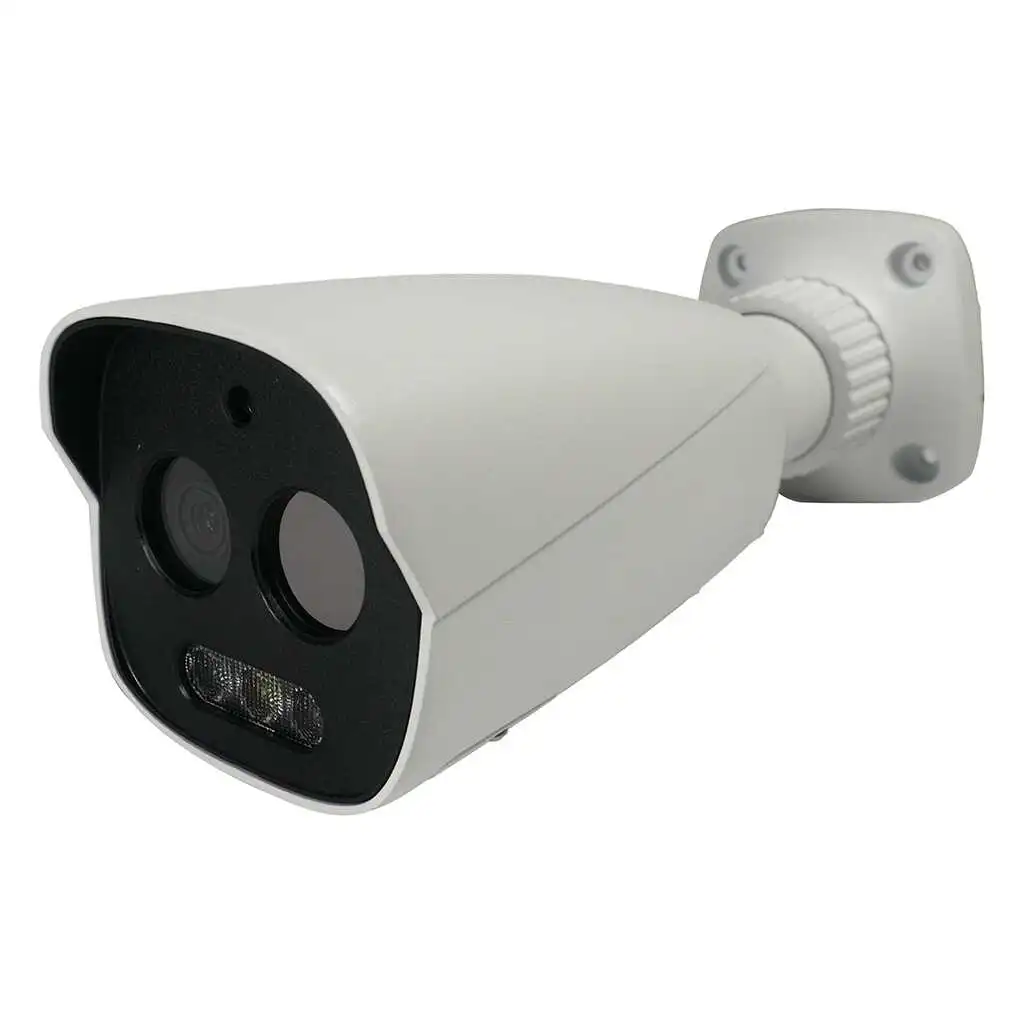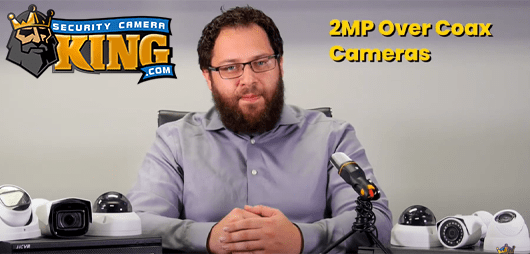CCTV installation is a crucial step towards enhancing the security of your home or business. It provides a reliable method to monitor your surroundings and deter potential intruders. If you’re wondering how installing CCTV can benefit you, here’s a quick look:
- Deters Crime: Visible cameras discourage potential criminals.
- Evidence Collection: Footage can be vital in legal situations.
- Remote Monitoring: Keep an eye on your property from anywhere.
- Increases Safety: Provides peace of mind for you and your family or employees.
Closed Circuit Television (CCTV) systems have become a staple in modern security practices, both at homes and in commercial settings. They serve as silent guardians, ever-watchful and ready to provide peace of mind by enhancing the overall safety of a location. Not only do these systems deter would-be criminals simply by being present, but they also offer invaluable insights through recorded footage, which can be critical in solving incidents if they occur.
CCTV systems are versatile, offering various types that can be custom to the specific needs of your property, whether it’s a residential setting, a busy office, or a retail space. Each type of camera brings unique features to the table, including night vision, high-resolution imagery, and discrete designs that blend seamlessly into your surroundings. By understanding these benefits and making informed decisions about installation, homeowners can strike a perfect balance between security, operational ease, and cost-effectiveness.

Understanding CCTV Systems
When it comes to CCTV installation, understanding the types of cameras and key components is essential. Each type of camera offers unique features, and knowing these can help you choose the best system for your needs.
Types of CCTV Cameras
Bullet Cameras: These are the long, cylindrical cameras you often see mounted on walls. They’re great for outdoor use because they have long-range visibility and excellent night vision. Their shape makes them easily noticeable, which can deter potential intruders.
Dome Cameras: Known for their dome shape, these cameras are more discreet and are often used indoors. They offer a wide field of view and are vandal-resistant, making them suitable for both indoor and outdoor use.
IP Cameras: These cameras transmit data over a network, allowing for remote viewing. They provide high-resolution video and are often used in systems that require detailed surveillance.
PTZ Cameras: Pan-Tilt-Zoom cameras are versatile and can be controlled remotely to pan, tilt, and zoom. This makes them ideal for covering large areas and tracking movement.

Key Components of a CCTV System
A complete CCTV system is more than just cameras. It includes several key components that work together to ensure effective surveillance.
-
Cameras: The heart of the system, capturing footage and providing real-time monitoring.
-
Wiring: Essential for connecting cameras to power sources and recording devices. Coaxial cables are used for analog systems, while Ethernet cables are used for IP systems.
-
Storage Devices: These hold the recorded footage. Options include DVRs for analog systems and NVRs for IP systems. Some systems also offer cloud storage for easy access to footage.
-
Monitoring Stations: Displays the video feed from your cameras. For small setups, a single monitor may suffice, but larger systems may require multiple monitors.
-
Power Supplies: Necessary to keep your cameras running. Some systems use PoE (Power over Ethernet), which simplifies wiring by combining power and data in a single cable.

Understanding these elements will help you make informed decisions about your CCTV installation. Whether you’re setting up a simple home system or a complex commercial network, knowing what each component does will ensure your system is both effective and efficient.
DIY vs Professional CCTV Installation
When it comes to setting up your CCTV system, you have two main options: DIY installation or hiring a professional. Each approach has its own benefits and challenges, so let’s explore both to see which might be the best fit for you.
DIY Installation Tips
DIY installation can be a rewarding project, especially if you enjoy hands-on tasks and want to save on installation costs. Here are some tips to help you get started:
-
Tools Needed: Make sure you have all the necessary tools before beginning. Essential items include a ladder, screwdriver, power drill, and fish tape. Having these on hand will make the installation smoother and quicker.
-
Camera Placement: Positioning your cameras strategically is crucial. Focus on entry points like doors and windows, as these are common areas for unauthorized access. Mount cameras high (around 9 feet) to avoid tampering and to get a wide field of view.
-
Wiring Organization: For wired systems, plan your cable routes carefully. Use fish tape to guide cables through walls and ceilings, minimizing visible wires. If you’re using wireless cameras, ensure they are within range of your Wi-Fi network.
DIY installation can be straightforward if you follow these tips, but it requires some planning and effort. If you run into challenges, professional help is always an option.
Importance of Professional Installers
While DIY can be tempting, hiring professional installers comes with its own set of advantages that can ensure your system is optimized for your specific needs.
-
Expertise: Professionals have the experience to install your system efficiently and correctly. They know the best camera placements for maximum coverage and can troubleshoot any issues that arise.
-
System Optimization: A professional will ensure that your system is set up to operate at its best. This includes optimizing camera angles, ensuring robust connectivity, and integrating additional security features if needed.
-
Compliance: For businesses, compliance with local laws and regulations is crucial. Professional installers are familiar with these requirements and can help you maintain compliance, avoiding potential legal issues.
Choosing professional installation might involve an upfront cost, but the benefits of expertise, optimized performance, and peace of mind can be well worth it. Whether you opt for DIY or professional services, the goal is to have a secure and reliable CCTV system that meets your needs.
In the next section, we will dive into a step-by-step guide to CCTV installation, covering everything from gathering tools to wiring and connectivity.
Step-by-Step Guide to CCTV Installation
Installing a CCTV system might seem daunting, but by following these steps, you can secure your space with ease. Let’s break down the process into simple, manageable tasks.
Gathering Tools and Materials
Before you start, gather all the essential tools and materials. Here’s what you’ll need:
- Ladder: To reach high places for mounting cameras.
- Screwdriver: For securing camera mounts and adjusting screws.
- Power Drill: To make holes for mounting cameras and running cables.
- Fish Tape: Helps guide cables through walls and ceilings, ensuring neat wiring.
Having these tools ready will make your installation process smoother and more efficient.
Camera Placement and Mounting
Proper camera placement is key for effective surveillance. Here are some tips:
-
Strategic Positioning: Place cameras at key entry points like doors and windows. This helps in capturing any unauthorized access.
-
Mounting Techniques: Use the provided mounts and ensure the camera is secure. A sturdy mount prevents the camera from being knocked out of position.
-
Height Considerations: Mount cameras high, around 9 to 10 feet, to avoid tampering and to cover a wider area. Tilt them slightly downward for optimal motion detection.
By following these guidelines, you ensure comprehensive coverage and minimize blind spots.
Wiring and Connectivity
Now, let’s focus on wiring and connectivity, which are crucial for a seamless operation:
-
Cable Management: Use fish tape to neatly run cables through walls. This not only looks professional but also prevents tripping hazards.
-
Power Supply: Ensure each camera is connected to a reliable power source. If using PoE (Power over Ethernet) cameras, a single Ethernet cable will suffice for both power and data.
-
Network Connection: For IP cameras, connect them to your network via Wi-Fi or Ethernet. This allows for remote access and monitoring.
With these steps, your CCTV system will be up and running smoothly, providing you with peace of mind.
Now that we’ve covered the installation basics, let’s move on to the frequently asked questions about CCTV installation, addressing common concerns and costs involved.
Frequently Asked Questions about CCTV Installation
Can I install CCTV myself?
Yes, you can install CCTV yourself, especially if you enjoy DIY projects. Many modern systems are designed for easy installation, making them accessible to most homeowners. Tools you’ll need include a ladder, screwdriver, power drill, and fish tape.
However, keep in mind that DIY installation might be challenging if you’re dealing with a complex system or large property. Improper installation can lead to blind spots or system malfunctions. For peace of mind, consider hiring a professional if you’re unsure about any part of the process.
What are the costs associated with CCTV installation?
The cost of CCTV installation can vary widely based on several factors. Basic systems might cost as little as $150 to $300, ideal for small homes or apartments. Advanced systems, with features like high-resolution cameras or cloud storage, can run up to $1,000 or more.
Factors affecting cost include the number of cameras, type of storage (local or cloud), and whether you opt for professional installation. While a DIY approach might save money upfront, professional installation ensures optimal system performance and compliance with local regulations.
Is it worth installing CCTV at home?
Absolutely, installing CCTV at home is a valuable investment. It acts as a deterrent to potential intruders, significantly reducing the likelihood of break-ins. Plus, CCTV footage can provide crucial evidence in case of an incident.
Beyond security, having CCTV can lead to insurance advantages. Some insurance companies offer discounts on premiums for homes with security systems, potentially offsetting the cost of installation over time.
In summary, while there is an initial cost, the long-term benefits in terms of security and potential insurance savings make CCTV installation a worthwhile consideration for any homeowner.
Conclusion
At Security Camera King, we pride ourselves on delivering reliable security solutions with exceptional video quality. Our systems are designed to meet the needs of both homeowners and businesses, ensuring comprehensive protection and peace of mind.
Why Choose Us?
Our Coaxial HD cameras stand out for their clarity and durability, providing superior video quality that captures every detail. This high-definition footage is crucial not only for identifying potential threats but also for ensuring that your security system functions effectively in any situation.
Reliable Solutions for Everyone
Whether you’re a homeowner wanting to secure your property or a business owner looking to protect your assets, we offer a range of systems custom to your specific needs. Our products are designed to be user-friendly, making them accessible to those who prefer a DIY installation, while also providing options for professional setup to ensure everything is optimized for your space.
Exceptional Support
We don’t just stop at providing great products. Our team is committed to offering comprehensive support, guiding you through the selection, installation, and maintenance processes. This ensures that your CCTV installation is smooth and effective, giving you confidence in your security setup.
In conclusion, when it comes to safeguarding your space, Security Camera King is your trusted partner. Our focus on quality and customer satisfaction makes us a leader in the security industry, ready to meet your surveillance needs with top-notch technology and support.


